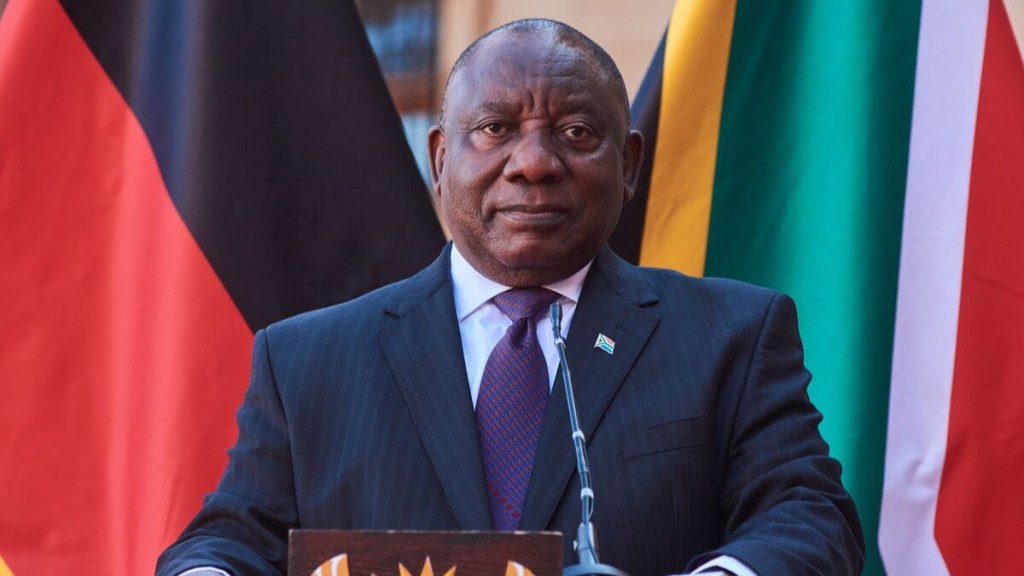The African National Congress (ANC) lost its parliamentary majority in an election result on Saturday, marking a significant shift in South Africa’s political landscape for the first time since the end of apartheid 30 years ago.
With over 99% of votes counted, the ANC had secured just over 40% in Wednesday’s election, falling short of the majority it had maintained since the landmark 1994 all-race vote that ended apartheid and brought Nelson Mandela to power. The final results are pending formal declaration by the independent electoral commission, but the ANC is unable to reach 50%.
Initially, the commission stated it would officially declare the results by Sunday, though this might happen sooner. Opposition parties have celebrated the outcome as a pivotal moment for a nation grappling with severe poverty and inequality. Despite this, the ANC remains the largest party by a significant margin. However, it will likely need to seek coalition partners to continue governing and secure a second term for President Cyril Ramaphosa. The South African president is elected by Parliament following national elections.
“The way to rescue South Africa is to break the ANC’s majority, and we have done that,” declared main opposition leader John Steenhuisen.
Complex path ahead for Africa’s most advanced economy
The path forward for Africa’s most advanced economy is expected to be complex, with no coalition agreement in place yet. Steenhuisen’s Democratic Alliance (DA) party garnered about 21% of the vote. The newly formed MK Party, led by former President Jacob Zuma, who has distanced himself from the ANC, came in third with just over 14% in its inaugural election. The Economic Freedom Fighters (EFF) followed with slightly over 9%.
Over 50 parties contested the election, many securing only tiny shares of the vote. The DA and MK appear to be the most plausible coalition partners for the ANC, given the gap to a majority. Forming a coalition is now a pressing concern, as Parliament must convene to elect a president within 14 days of the official election results. Intense negotiations are expected and will likely be intricate.
Steenhuisen has indicated that his centrist party is open to discussions. The MK Party, however, has stipulated that any coalition agreement must involve removing Ramaphosa as ANC leader and president, highlighting the fierce political rivalry between Zuma, who resigned under corruption allegations in 2018, and Ramaphosa, his successor.
“We are willing to negotiate with the ANC, but not the ANC of Cyril Ramaphosa,” said MK Party spokesperson Nhlamulo Ndlela.
Both the MK and the far-left EFF advocate for parts of the economy to be nationalised. In contrast, the DA is seen as business-friendly, and analysts suggest an ANC-DA coalition might be more favourable to foreign investors, though its political feasibility is questionable given the DA’s long-standing critical stance.
An ANC-DA coalition “would be a marriage of two drunk people in Las Vegas. It will never work,” stated Gayton McKenzie, leader of the smaller Patriotic Alliance party, to South African media.
Opposition parties highlight new political dynamics amid uncertainty
Amid the uncertainty, opposition parties are heralding the new political dynamics as a vital change for South Africa, a country of 62 million that is Africa’s most developed but also one of the most unequal.
South Africa suffers from widespread poverty and exceptionally high unemployment, with the ANC struggling to improve living standards for millions. The official unemployment rate stands at 32%, one of the highest globally, with poverty disproportionately affecting Black people, who constitute 80% of the population and have traditionally been the ANC’s core supporters.
The ANC has been criticised and now punished by voters for failing to provide basic government services, leaving many without water, electricity, or adequate housing. Nearly 28 million South Africans were registered to vote, with turnout expected to be around 60%, according to the electoral commission’s figures.

